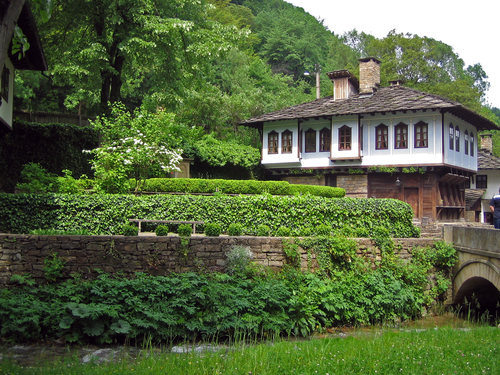At first glance, Bulgaria is a tempting place to buy a property to live in or as an investment. You can get a lot for your money and there are plenty of dilapidated, crumbling houses you can pick up for a low cost. However, before you change your job title to International Property Developer, you do need to know about the hoops you’ll need to jump through in order to bring the property to a reasonable standard or build a new house on a plot of land.Like many countries, Bulgaria has strict rules about what you can build on your land and how much you can change a property. Before even buying the property, it is strongly advised that you instruct a solicitor to check that all the documents are in order. Even if the property price is low, these checks will be worth it in the long run. The main thing to check when you buy a property (especially a house in a rural area) is whether there has been any new construction works undertaken. If the answer is yes, then ask the seller for the planning permission documents. If the seller can’t provide these documents, it is likely that the construction was done illegally. The implications of illegal construction are as bad as you would imagine. The construction will have to be demolished either by the current owner or by the Directorate of National Construction Control. In both instances, the expenses for the demolition will be billed to the current owner.
If you are buying a rural plot of land, you will need to be extra careful. During the 1945 nationalisation of all private properties in Bulgaria, many rural plots were split, joined and then split again. This was the work of the collective of agricultural unions (TKZS). After the 1989 revolution, the land was returned to the heirs of the original owners. This can cause a multitude of problems with the plot borders. You need to be absolutely certain that seller is the only current owner of the plot and there are no reserved property rights left on the property such as agreement for personal care and financial support. If there is another claim on the plot, you either have to solve this issue or move on to the next plot.
Another important point before you begin to construct or renovate a property is to establish what is permitted. If you are purchasing a plot of rural land, it needs to be regulated for residential purposes before any work starts. This can be a complicated and drawn-out process, meaning it will be more efficient to employ the services of an expert.
There is a bright side! If you intend to do minor work which does not affect the structure of the existing building, you will not be required to obtain permission from the local municipality. However, if the works you are thinking of involve significant changes to what is already stated in the municipal plan for your plot or property, you will have to apply to have the plan changed. To avoid any problems down the line, it is advisable that this procedure is carried out by an expert. You also need to be aware of the fact that any neighbouring owners have the right to object to the change. However, if there are no objections, then an official document will be issued by the municipality for the change of the plan.
Once the plan has been changed, you will have to obtain another plan of your property on which the chief architect of the municipality will state the conditions you need to follow, such as density of construction, distance from the plot borders and so on. It is advisable that you have a discussion with your architect prior to this stage so that you know what to include in the application to the chief architect. The plan with the notes and signature of the chief architect is called a ‘visa for preparation of designs’.
The architect you contract to prepare the designs will take the ‘visa’ as a starting point. Once all the details of the designs are ready (including architectural, structural, electrical, water, ventilation, heating and landscaping issues), an application is made to the local authority for building permission. As long as the designs comply with the regulations, they should be approved and stamped. Along with the design approval, contracts with the electrical and water companies need to be submitted. You may also be required to obtain additional permission from other regulatory bodies such as the Fire Brigade or National Institute of the Monuments of Culture, depending on your plans. If your documents are in order, you will receive permission to build. Please keep in mind that the permission to build is only valid for five years and is specific to the project you submitted. If you want to make any changes to the plans, you will have to start the process from the beginning.
If you still want to purchase a property or a plot of land in Bulgaria but don’t want to get showed under all the bureaucratic paperwork, there is a solution. There are many property management companies in the country that offer a complete ‘start to finish’ service when it comes to purchase of property or plots of land, as well as advice on legal matters and planning permission.
Have you renovated a property in Bulgaria? Share your experiences in the comments below, or answer the questions here to be featured in an interview!

